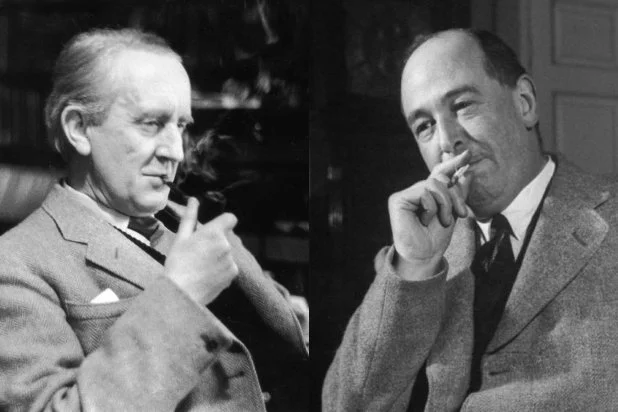
Peter & The Holy Spirit Series: “Facts-Faith-Feelings”
November 5, 2015
“What to Do?” (from the Peter & The Holy Spirit Series)
November 19, 2015 One day we were all sitting together and Matthew was reliving the day he first met Jesus. All of us were smiling at the memory of that day. We couldn’t believe Jesus was even talking to this hated traitor – a tax collector for the hated Romans – and we were even more shocked when Jesus said, “And by the way, Matthew, we’re going to your house. We’re hungry and you’re rich, so have your servants prepare a meal for us.”
One day we were all sitting together and Matthew was reliving the day he first met Jesus. All of us were smiling at the memory of that day. We couldn’t believe Jesus was even talking to this hated traitor – a tax collector for the hated Romans – and we were even more shocked when Jesus said, “And by the way, Matthew, we’re going to your house. We’re hungry and you’re rich, so have your servants prepare a meal for us.”
You could have knocked me over with a feather.
By the time the meal was ready Matthew had about a dozen of his friends sitting around his huge table. These were mostly other tax collectors, but some were just rich, greedy businessmen who everyone knew cheated people. One thing they all had in common: not one ever darkened the doors of the temple, or a neighborhood synagogue. Religion and God were dead to them.
The Pharisees labeled these men “sinners.”
During the meal Jesus was having a raucous conversation with Matthew and his friends. He was engaging them with questions, and responding to their many questions. They in turn were totally connecting with him. I could see from their expressions they liked this rabbi, Jesus, and wanted to hear what he had to say.
The mood around the table was positive and the energy was palpable. The “sinners” would say something like, “But what about all your religious hypocrites? Why would anyone want to be like them?” To which Jesus would reply, “I’m with you. I don’t like hypocrites, either. Not one bit. But you know what the funny thing about hypocrites is?”
They shook their heads, looking at Jesus expectantly. “Everyone is a hypocrite at one time or another, and yet no one ever thinks they are. So my question to you is, ‘Why do you look at the speck of sawdust in your brother’s eye and pay no attention to the plank in your own eye?’
“You hypocrite, first take the plank out of your own eye, and then you will see clearly to remove the speck from your brother’s eye.”
They loved this kind of blunt honesty from Jesus.
The twelve of us had stepped away from the table after the meal, partly to give the men at the table more access to Jesus, and partly because we were uncomfortable being seen with them. Remember, at this point we were as blind as they were; we just didn’t know what we didn’t know.
But these sinners had no illusions as to their righteousness, or lack thereof, which gave them a distinct advantage over us – and certainly over the Pharisees. These men knew they were outcasts with the people, and God. But we all just assumed we were right with God.
And the Pharisees were absolutely convinced they were. Speaking of whom, a few were now approaching us with a scowl on their faces. They asked us, “Why does your teacher eat with tax collectors and sinners?”
On hearing this, because Jesus always seemed to hear everything, he said, “It is not the healthy who need a doctor, but the sick. But go and learn what this means: ‘I desire mercy, not sacrifice.’ For I have not come to call the righteous, but sinners.”
I could describe to you the angry look on the faces of the Pharisees, but what was so much more interesting was the look on the men around the table. They heard Jesus call them “the sick,” and “sinners.” There was a sudden silence around the table as their smiles faded and a look of consternation spread across their faces.
I wondered what would happen next. Had Jesus gone too far? They looked insulted and deflated, and there was a little murmuring starting among them. Matthew then spoke up, “Rabbi, are you calling us sick, and sinners?”
To which Jesus, with that contagious grin of his, said, “Of course I am, Matthew. You are, aren’t you? Look at yourselves, you’re tax collectors and dishonest businessmen and such. I’m not condemning you. As a matter of fact I like you.
“But let’s face the facts.” He then turned his smile to us, the twelve, and said, “And so are they. They’re sinners just like you!”
We weren’t sure what to make of this. Nor were the men around the table. There was a moment of uncomfortable silence. But then Matthew smiled, and starting laughing. One by one each of his friends started to laugh, too. So did we. Ours was a nervous laughter, but theirs was a belly laugh.
“He’s right,” one of them bellowed. “Of course we are sinners. I am, that’s for sure. And for the first time in my life I don’t mind admitting it. Yes, I’m sick. But I believe this man can make me right.”
Another man joined in, “Me too! Come on guys, let’s face it, we are all sick sinners. But this man Jesus doesn’t make me feel bad, or rejected, or like a failure. As a matter of fact, I do believe he likes us.”
Can you imagine this scene? A bunch of grown men, dressed in their finest clothes, proud, rich, and accomplished: suddenly giggling, each looking intently at Jesus, some even crying? And all the while I’m watching this play out and wondering, “Who is this Jesus, that even the hated tax collectors feel comfortable round him?”



